Donald Trump’s fifth presidential visit to Europe, from July 11 to 16 with stops in Brussels for a NATO summit, in London to tend to the “special relationship,” in Scotland to relax and promote a Trump business, and in Helsinki for a summit with Russian President Vladimir Putin, caused no shortage of headlines and political storms.
On July 19, Brookings convened a discussion of where the trip and Trump’s “no friends, no enemies” approach to foreign policy have left the trans-Atlantic relationship, in partnership with the Turkish Industry and Business Association (TÜSİAD). Following introductory remarks from Center on the United States and Europe director Thomas Wright and TÜSİAD CEO Bahadır Kaleağası, Susan Glasser of The New Yorker moderated a panel including four Brookings scholars: Wright, TÜSİAD Senior Fellow Kemal Kirişci, Stephen and Barbara Friedman Senior Fellow Robert Kagan, and Nonresident Senior Fellow Angela Stent. Glasser opened by relaying further news: Trump had just invited Putin to the White House for a fall follow-up to their rendezvous in Finland.
ALLIES?
Kagan argued Trump and Putin were actually “allied in a fundamental way,” with their common objective “to destroy the liberal world order.” In berating NATO allies, “Trump did more damage to the West at Brussels than Putin could have hoped for.”
Glasser noted the Trump administration has enacted tough policies on Russia despite Trump’s rhetoric. Kagan asked if anyone still trusted the United States as an ally committed to defending the liberal world order. “When Trump makes it apparent… that he thinks NATO is a terrible deal for the United States… at the end of the day that alliance depends on public support,” he said. “You can’t go to Brussels and insult all your major allies and expect everything to just chug along.”
Kirişci said that the word Helsinki reminded him of the 1975 Helsinki Accords, in which “under U.S. leadership, the West was able to put forward the very basic norms and principles of the [international liberal] order.” He described that Helsinki summit as “the beginning of the breaking up of the Soviet Union” and hoped this one would not have the impact of its predecessor in reverse.
Stent noted that while U.S.-Russia summits usually involved more preparation and more people in the room, Ronald Reagan and Soviet leader Mikhail Gorbachev met for the first time in Geneva with a leaders-and-interpreters-only session—as Putin and Trump did for two hours in Helsinki—with results that weren’t bad.
“We have at least two Russia policies in this administration,” Stent said. “One of them is the policy of the president himself,” the other that of the rest of the government which “doesn’t look that different from previous Russia policies because the issues don’t change.” What is “unusual” is that following Helsinki, the Russians are talking about implementing agreements, while “we don’t know what these agreements are.”
Glasser asked Wright if Trump would need to go to war with his own foreign policy apparatus, including his notoriously hawkish national security advisor. “For John Bolton, hell is getting what you want,” Wright replied. “He’s wanted this job his whole life, he’s wanted a nationalistic president,” and now he has to implement diplomatic strategies with North Korea and Russia that he opposes and “to do so with a smile… It’s got to be torturous for him but he is deciding, it seems, to suck it up and to say that he’s implementing the president’s vision.” Wright underlined that “the most important person in this administration is the president,” who “hated” being constrained by his team last year and is now implementing “his presidential bucket list”—meeting with Putin and North Korea’s Kim Jong-un, trashing the Iran nuclear deal, and imposing tariffs on the European Union.
A TRANS-ATLANTIC “SYNERGISTIC DOWNWARD SPIRAL”
Glasser asked whether Europe, and particularly Germany and France, would actually “take any concrete actions” in response to the changing role of the United States. Kagan replied that counterbalancing might be expected by theory, but that Europe was itself “on a downward trajectory,” threatened by populist nationalist movements, with politics fragile in Germany and France, and Britain “sail[ing] off towards Greenland” in a major geostrategic shift. “Not only do we not need the United States dividing Europe and undermining Europe,” Kagan argued, “but we actually need the United States to be working actively to support and strengthen Europe.” He described the trans-Atlantic partners as being in a “synergistic downward spiral.” Kirişci recalled that less than ten years ago, the forward trajectory of an EU enlarging and spreading norms and standards seemed inevitable, with Turkey among those doing well economically and on democracy. The 2008 crisis “derailed the whole process.”
Near the end of the conversation, Glasser asked if anyone thought Trump’s goal was to unravel the EU and the answer was a unanimous yes. Wright argued that Trump had long opposed NATO but developed his views on the EU in the second half of 2016, influenced by Nigel Farage and Steve Bannon. He warned of “fireworks” next week as European Commission President Jean-Claude Juncker visits Washington, which Trump “keeps talking about.”
Kagan noted that America’s “original and traditional” posture is anti-European—“some of this is Trump but the American people are entirely receptive.” He continued that Trump “has all the right enemies” from the point of view of his core constituency, and that what Trump is doing when he “lashes out” at NATO, the EU, or Germany is “feeding that constituency what it wants more than anything”—anger. “And that is in a way the key to the whole system. Why can’t the Republicans oppose Trump? Because the majority of their constituents are these people.” Wright argued that the scaled effects of tariffs would test this loyalty, as the EU and Chinese responses are highly targeted at Trump voters. Kagan replied that “the early returns” show farmers who are already affected by the trade wars are still with Trump.
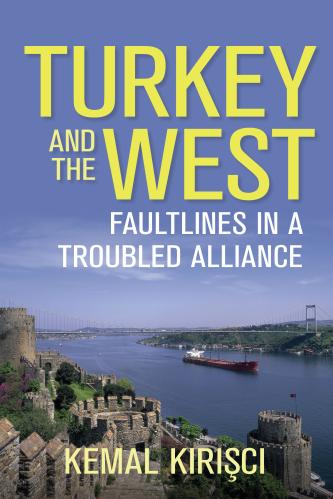
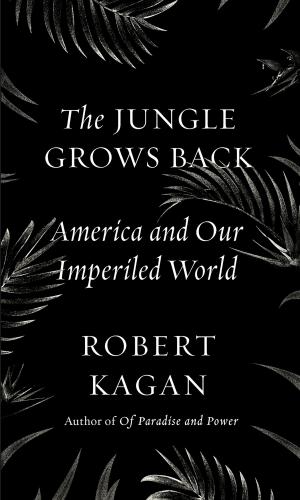
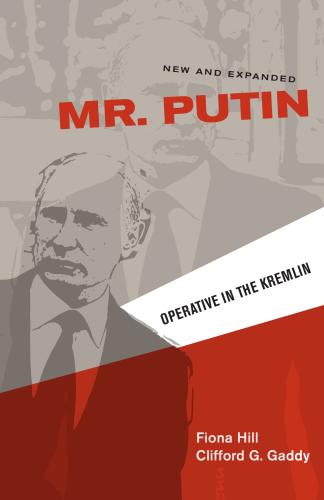
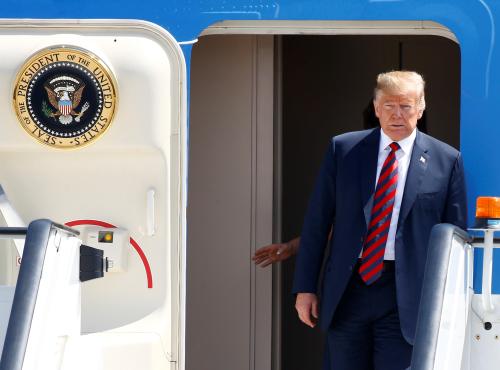

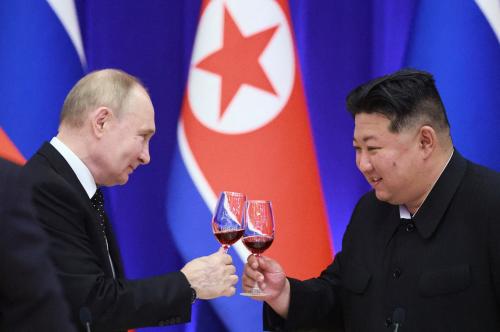
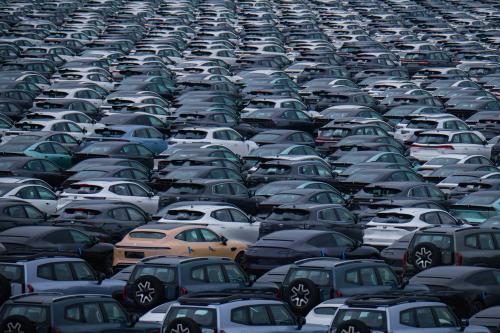
Commentary
“To destroy the liberal world order”: Trump, Putin, and the imperiled trans-Atlantic alliance
July 20, 2018